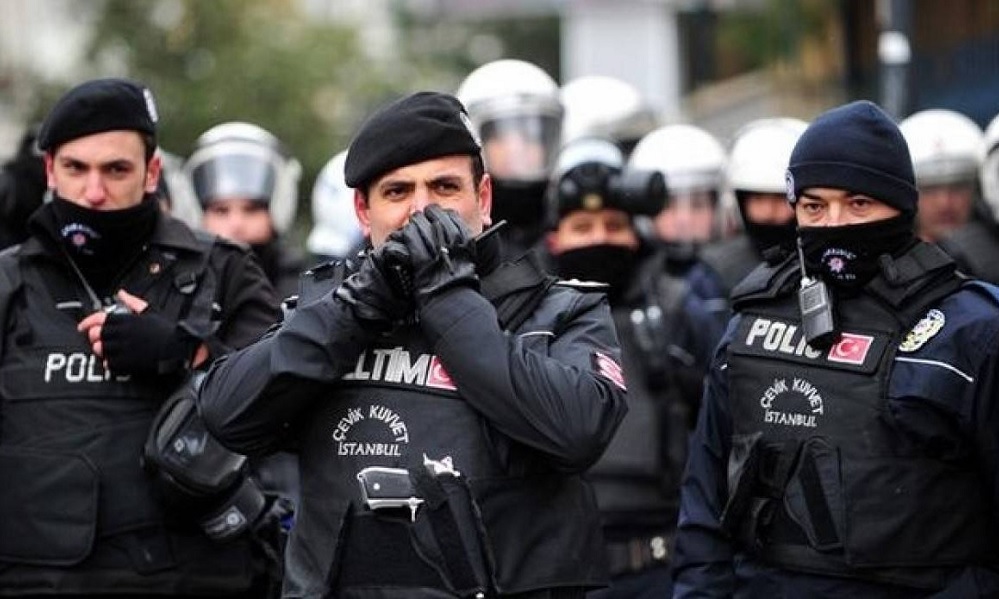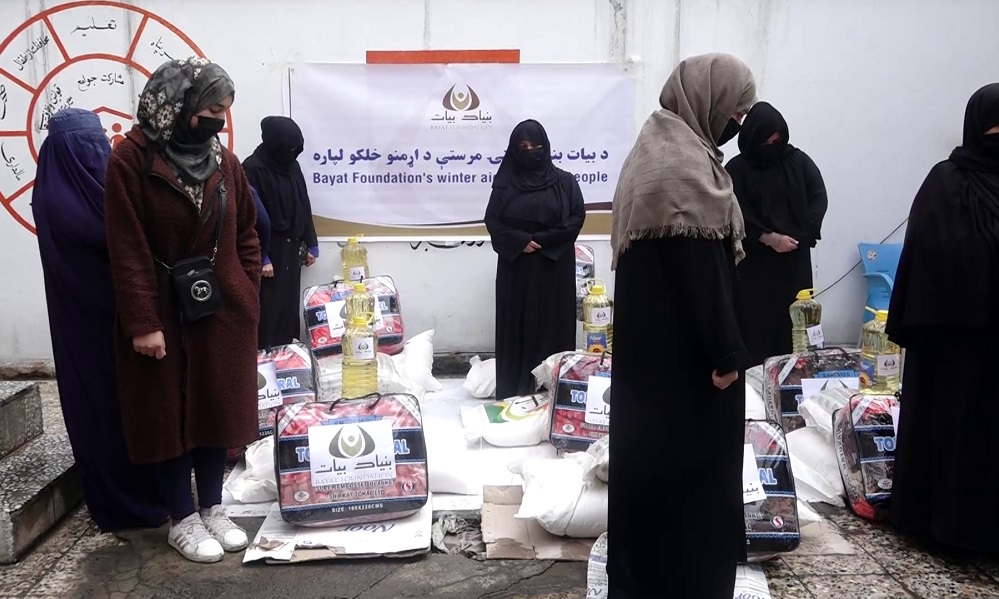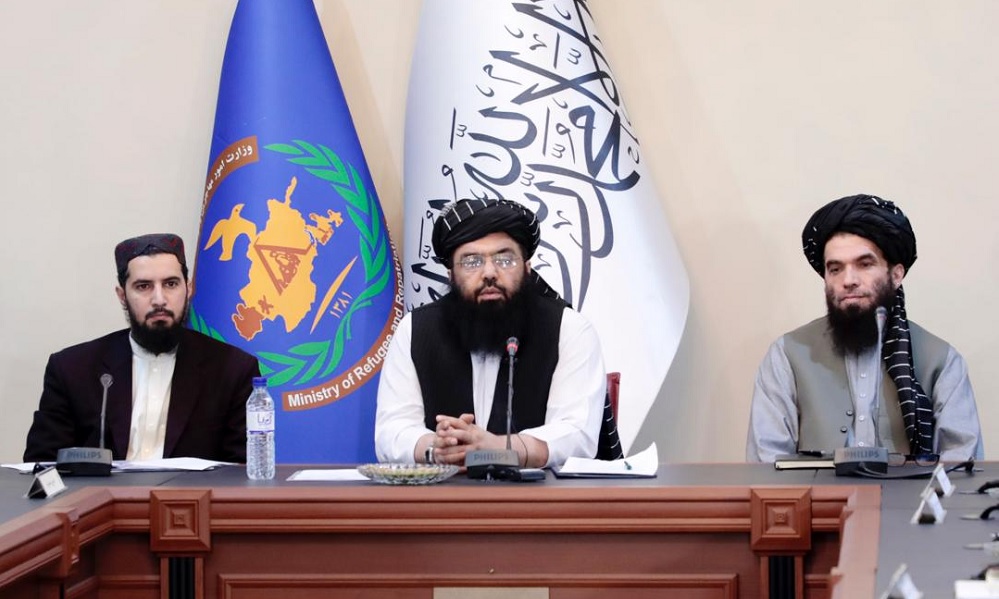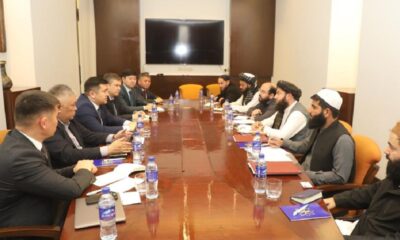Latest News
Officials cry foul over ethnicity and tribe categories for ID cards

The Afghan National Statistics and Information Authority (NSIA) has allegedly classified a number of ethnic groups and tribes into categories – in a move met with a strong backlash by Afghans including some government officials.
The categorized list of ethnicities and tribes is included in an online platform for registration for the new electronic national ID cards.
Based on the list, all Pashtuns in Afghanistan are classified into one ethnic group but the rest of the groups such as Tajiks, Hazaras, and Uzbeks are each divided into several tribes.
Some politicians believe that the NSIA’s list “deliberately” fuels disunity among the people of Afghanistan as the organization has categorized ethnic groups based on their “villages, districts and tribes.”
Second Vice President Sarwar Danish said the list lacks “scientific and practical” elements and this in itself could lead to disputes in the country.
“Hasty decisions would question the government and create divisions and mistrust among our people,” Mohammad Hedayat, the head of Danish’s media office said.
Meanwhile, former Foreign Minister Salahuddin Rabbani stated that the NSIA has intentionally planned to divide ethnicities based on districts and villages.
Atta Mohammad Noor, Chief Executive of Jamiat-e-Islami Party, claimed that the NSIA is not “aware of the difference between an ethnicity and place of residency.”
“This government organization is not yet aware of this important fact that there is a huge difference between an ethnicity and the residence of a group, and you can never count the name of the location as the ethnicity of a specific people,” said Ahmad Afzal Hadid, Head of Balkh Provincial Council.
Abdullah Abdullah, Chairman of the High Council for National Reconciliation, also spoke out against the NSIA’s decision and called the list a “mistake.”
Abdullah called on the organization to rectify the issue.
The NSIA, however, claimed that its decision was made at the request of the people.
“This decision was made as per the request of a number of tribal elders and the interpretation of the third part of Article 4 of the Constitution,” said Roeina Shahabi, the spokesperson for the NSIA.
Shahabi stated: “According to the statement (tribal elders) requested through various official sources the inclusion of their tribes in the electronic ID card, which was not clearly mentioned in the Constitution.”
Article 4 of the Constitution reads: National sovereignty in Afghanistan shall belong to the nation, manifested directly and through its elected representatives. The nation of Afghanistan is composed of all individuals who possess citizenship of Afghanistan.
The nation of Afghanistan shall be comprised of Pashtun, Tajik, Hazara, Uzbek, Turkman, Baluch, Pachaie, Nuristani, Aymaq, Arab, Qirghiz, Qizilbash, Gujur, Brahwui, and other tribes.
The word Afghan shall apply to every citizen of Afghanistan. No individual of the nation of Afghanistan shall be deprived of citizenship. Citizenship and asylum-related matters shall be regulated by law.
Latest News
Turkish intelligence captures a Daesh member near the Durand Line

Turkish intelligence agents have captured a senior member of Daesh near the Durand Line, reportedly preventing planned suicide attacks in Turkey and other countries, according to Turkey’s state-run Anadolu Agency on Monday.
The suspect, identified as Mehmet Goren, is a Turkish citizen. He was apprehended during a covert operation and transferred to Turkey. Details on the timing of the operation or the involvement of Afghan and Pakistani authorities were not disclosed.
According to the report, Goren had risen through the ranks of Daesh and was allegedly tasked with carrying out suicide bombings in Turkey, Pakistan, Afghanistan, and Europe.
Daesh has a history of deadly attacks in Turkey, including the January 1, 2017 shooting at an Istanbul nightclub that killed 39 people.
Anadolu Agency reported that Goren’s arrest also provided intelligence on the group’s recruitment strategies and planned activities.
Latest News
Dozens of needy families in Kabul receive winter aid from Bayat Foundation

Dozens of needy families in Kabul’s fifth district have received essential winter assistance from the Bayat Foundation, as part of ongoing efforts to ease hardship during the cold season and worsening economic conditions.
According to foundation officials, the aid package includes staple food items such as flour, rice, and cooking oil, along with warm blankets to help families cope with freezing temperatures. Haji Mohammad Ismail, Deputy Head of Bayat Foundation, said the distribution began in Kabul and will soon be expanded to other provinces.
“Our assistance includes flour, rice, cooking oil, and blankets,” Ismail said. “Today, we started distributing these items in Kabul’s fifth district, and God willing, the aid will reach other provinces in the near future.”
Afghanistan continues to face widespread poverty, unemployment, and food insecurity, with many families struggling to meet basic needs, particularly during winter when access to work and heating becomes more difficult.Humanitarian organizations and charitable foundations have stepped up relief efforts to support those most affected.
Beneficiaries welcomed the assistance, describing it as a lifeline. “May God bless you for helping the poor. We had nothing and no work,” said one recipient. Another added, “Thank you for your help. Our flour was almost finished.”
Bayat Foundation officials stressed that winter aid distributions will continue in Kabul and other provinces in the coming days, as part of their broader commitment to supporting needy families across the country.
Latest News
Nearly seven million Afghan refugees return home since Islamic Emirate’s takeover

Since the Islamic Emirate came to power, approximately 6.8 million Afghans have returned home, either voluntarily or forcibly, from neighboring countries and other nations, according to the Minister of Refugees and Repatriation.
Mawlawi Abdul Kabir, speaking at a meeting on finalizing a draft plan for a permanent migration solution in Afghanistan, added that 1.3 million Afghans have been internally displaced due to natural disasters during the same period.
With winter approaching, widespread poverty and severe cold are threatening thousands of lives. Meanwhile, the forced expulsion of Afghan migrants from neighboring countries, particularly Iran and Pakistan, continues.
The Islamic Emirate has repeatedly urged neighboring states to allow migrants to return voluntarily. According to UNHCR, over two million Afghans have returned from Iran and Pakistan since the start of 2025.
-

 Latest News2 days ago
Latest News2 days agoAfghanistan signs 30-year deal for marble mining in Daikundi
-

 Latest News4 days ago
Latest News4 days agoAfghan border forces prevent illegal entry of hundreds into Iran
-

 Latest News3 days ago
Latest News3 days agoPakistan summons Afghan diplomat over deadly attack in North Waziristan
-

 Latest News3 days ago
Latest News3 days agoAfghan health minister calls for medical cooperation between Kabul and New Delhi
-

 Latest News4 days ago
Latest News4 days agoJapan allocates nearly $20 million in humanitarian aid for Afghanistan
-

 Latest News3 days ago
Latest News3 days agoKarzai urges reopening of girls’ schools and universities for Afghanistan’s bright future
-

 Health5 days ago
Health5 days agoAfghanistan seeks India’s support in standardizing traditional medicine
-

 Business5 days ago
Business5 days agoAfghanistan-Kazakhstan banking ties discussed in Kabul meeting
























